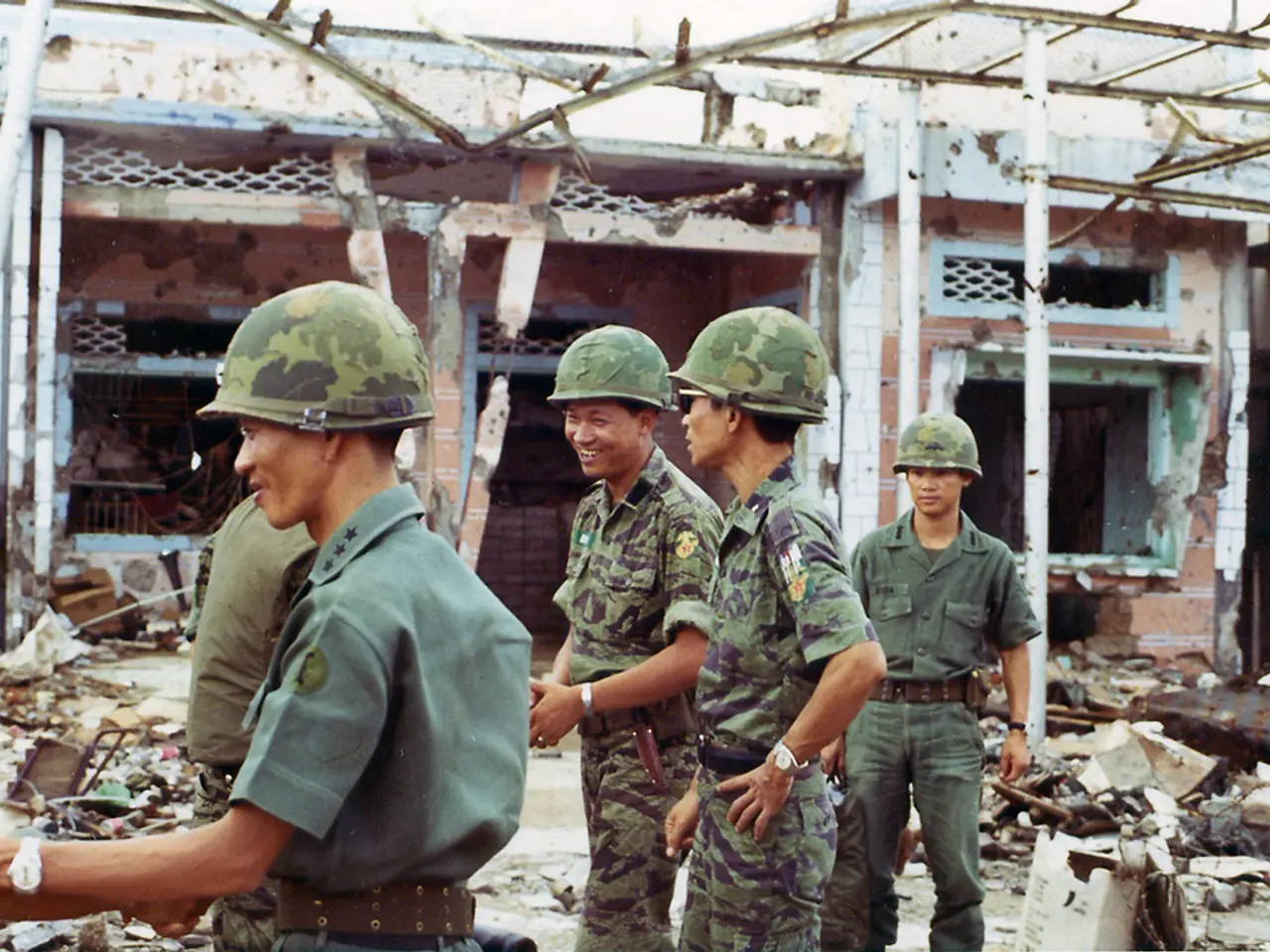Nanking Massacre's Enduring Cultural Importance in China: An Examination
The Nanking Massacre, a dark chapter in history that took place between December 1937 and January 1938, continues to leave a lasting impression on Chinese national identity and foreign policy. This tragic event, which saw the brutal slaughter of hundreds of thousands of Chinese civilians and surrendered soldiers by Japanese Imperial Army soldiers, is still shrouded in controversy and emotional turmoil.
The Yasukuni Shrine, a controversial shrine in Japan, includes Class-A war criminals from World War II, including those involved in the Nanking Massacre. For many Chinese, this inclusion is seen as a symbol of Japan's lack of remorse for the atrocities committed during the massacre. The Nanking Massacre is considered a moral wound for many, a source of trauma that continues to shape Chinese national identity.
The Japanese government has not issued a formal apology for the Nanking Massacre, a point of contention for many Chinese. The lack of official acknowledgement and atonement has fueled ongoing disputes over the scale of the massacre and its acknowledgement by some Japanese nationalists.
Recent Chinese films revisiting these events have sparked renewed reflection, particularly among younger generations. These films depict wartime events, including the Nanking Massacre, and are triggering reflection, underscoring their ongoing significance to Chinese national identity.
The Nanking Massacre is not just a tragic chapter in history, but a moral issue for many Chinese. It is a legacy that still has a significant emotional impact, a source of trauma that continues to shape Chinese national identity.
The Nanking Massacre is also impacting Chinese-Japanese relations. The ongoing dispute over historical memory affects efforts at reconciliation and regional security dynamics, showing how these traumatic legacies continue to shape China’s identity and external relations.
In terms of foreign policy, these events inform China's cautious and often firm stance toward Japan, influencing diplomatic interactions, and underpinning broader calls for historical justice, war reparations acknowledgement, and education about wartime history.
Unit 731, a covert biological and chemical warfare research and development unit of the Japanese army, conducted lethal human experiments, including on Chinese civilians and prisoners, causing massive suffering and death. Its atrocities, like the Nanking Massacre, have been featured prominently in Chinese popular culture and media, reinforcing public memory of Japanese wartime aggression.
The Nanking Massacre remains unresolved and unaddressed by the Japanese government. For many Chinese, it is a legacy that leaves a lasting impression, a moral wound that continues to shape their national identity and foreign policy.
[1] Yuen, E. (2018). The Nanjing Massacre: History, Memory, and Significance. Routledge. [2] Dower, J. W. (1999). Embracing Defeat: Japan in the Wake of World War II. W.W. Norton & Company. [3] Iriye, A. (2007). The Origins of the Cold War in Asia. Columbia University Press. [4] Chen, J. (2013). The Rape of Nanking: An Investigation into the Atrocity, Its History, and Its Meaning. Basic Books. [5] Xu, J. (2017). The Chinese People's War, 1937-1945: Resistance, Revolution, Civil War. University of California Press.
- The ongoing controversy and emotional turmoil surrounding the Nanking Massacre in Chinese national identity and foreign policy are deeply intertwined with the lack of official apology and atonement from the Japanese government, as well as the persisting dispute over the accuracy of historical accounts.
- The significant emotional impact of the Nanking Massacre can be seen in not only Chinese national identity but also in their relations with Japan, as the moral issue continues to shape diplomatic interactions and regional security dynamics.
- The Nanking Massacre, Unit 731's human experiments, and other war-and-conflicts associated with Japan have transformed into sources of trauma and public memory for the Chinese people, significantly influencing their general-news discourse, media, and overall historical perspective.







